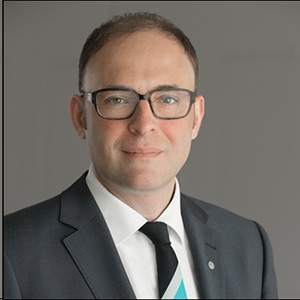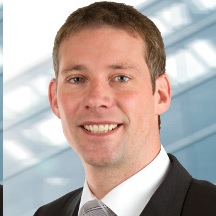We are thrilled to announce the 2nd Cyber Security in Cars Workshop (CSCS) — a premier event dedicated to tackling the evolving challenges of cybersecurity in modern vehicles. CSCS brings together researchers, industry experts, developers, and security professionals to explore cutting-edge research, discuss emerging threats, and collaborate on innovative solutions in automotive cybersecurity.
The CSCS 2025 conference will once again be hosted at ACM Conference on Computer and Communications Security (CCS)!
Building on the legacy of the ACM Computer Science in Cars Symposium, CSCS continues to advance the field, fostering discussions that bridge academia and industry.
We also want to extend a huge thank you to everyone who contributed to making the 1st CSCS at ACM CCS a resounding success! Your research, insights, and participation helped create a vibrant and inspiring event, and we look forward to building on that momentum.
Timeline
-
Workshop Announcement
Official announcement of the CSCS Workshop at ACM CCS 2025, including details on topics, submission guidelines, and important dates.
-
Deadline for Paper Submission
Final date for researchers to submit their papers for consideration at the workshop. The deadline has been extended from
June 20th to June 29th
Anywhere-on-Earth time.
Submit here
-
Author Notification
Authors will be informed about the acceptance status of their submissions, along with reviewer feedback for
potential revisions.
-
Deadline for Camera-ready Submission
Accepted papers must be finalized and submitted in their camera-ready format, ensuring they meet formatting and
quality requirements.
-
Conference Dates
The ACM CCS 2025 conference takes place, including the CSCS Workshop, where accepted papers will be presented and
discussed among researchers and practitioners.
Call for Papers
CSCS brings together researchers, practitioners, developers, and anyone interested in solving the myriad complex problems of cyber security in modern vehicles. The conference offers a common platform to discuss new developments in vehicle technology and its applications. In addition to presenting current research contributions, the conference offers the opportunity for networking, joint brainstorming on current challenges and the development of new solutions.
Cyber Security for Vehicles is a very important research area due to the current drive to make vehicles fully autonomous and increasingly connected. Software systems running on Electronic Control Units (ECU) and High-Performance Computers (HPC) handle a wide spectrum of functions ranging from autonomous/assisted/cooperative driving over infotainment to integrated intelligent assistants.
However, vehicles’ associated connectivity must be secured against attackers, as successful attacks can have devastating effects. The threat surface is getting even more complex especially with the pervasive use of artificial intelligence in many central components.
Topics of interest include, but are not limited to:
- Security of Artificial Intelligence and Autonomous Driving Systems
- Novel defenses enabled by Artificial Intelligence
- New threats due to integration of Artificial Intelligence in vehicles
- AI-enabled attacks on vehicles and infrastructures (e.g. exploits, red teaming)
- Opportunity and risk due to emergent GenAI technologies
- Secure in-vehicle communication (e.g., CAN, Automotive Ethernet, FlexRay)
- Security of Automotive protocols (e.g., diagnostics)
- Secure external communication (e.g., V2X, Internet) and protocols (e.g., secure remote update)
- System security of Electronic Control Units, gateways etc. (e.g., hardware security, OS security)
- Automotive security standardization, secure software development, security engineering, security testing
- Automotive security monitoring (e.g., IDS, IPS, SIEM, SOC)
- Automotive forensics and accident research
- Privacy-enhancing technologies and mechanisms for automotive applications
- Piracy, product counterfeit, and theft protection (e.g., RKE, Immobilizer)
- Practical security evaluations / penetration testing
- Interaction of safety and security
- Security for electric mobility and the charging infrastructure
- Usable security in vehicles and other human factors
- Security of Intelligent Transportation Systems (ITS)
- Security for non-car vehicles and their respective eco-systems: trucks, busses, motorcycles, special vehicles, snow cars, quads, e-bikes
Submissions
We are looking for submissions with high quality, original and unpublished contributions in two
categories:
- Full papers up to 10 pages
- Short position papers or work-in-progress (WIP) papers up to 6 pages
excluding references and appendices. Note that reviewers are not required to read appendices
or any supplementary material. The review process is double-blind. Submissions have to be anonymized.
All papers must be formatted in the double-column ACM format (sigconf)
and submitted via the submission system. Authors should not change the font or the margins of the ACM format. Submissions
not following the required format may be rejected without review.
Short papers are suitable for position papers or original works whose descriptions fit within 6 pages. WIP papers are
suitable for original yet incomplete work that is looking for middle-stage feedback from the community. Short or WIP
papers must have the prefix “Short:”/“WIP:” in their titles
Articles will be submitted using Microsoft CMT. You will have to upload
a pdf document and an abstract after registering the corresponding author. Once a paper (regular, short, WIP) is accepted,
at least one of the authors is expected to attend the conference to present it.
Submit here
Committee
General Chair

Hans-Joachim Hof
Technical University of Ingolstadt, Germany
Hans-Joachim Hof is full professor and vice president of Technische Hochschule Ingolstadt, Germany. He leads the research group „Security in Mobility“ in the CARISSMA Institute of Electric, Connected, and Secure Mobility (C-ECOS). His research focus is on the security testing of vehicles as well as on secure automotive software. Previously, Hans-Joachim was a full professor at the Munich University of Applied Sciences, Germany and research scientist at Corporate Technology of Siemens AG, Germany. He holds a PhD from the Karlsruhe Institute of Technology, Germany. Hans-Joachim is a member of the board of the German Chapter of the ACM and of the German national computer science association (Gesellschaft für Informatik).
Program Co-Chairs

Mario Fritz
CISPA Helmholtz Center for Information Security, Germany
Mario Fritz is faculty member at the CISPA Helmholtz Center for Information Security, Saarbruecken, Germany and professor at the Saarland University. Previously, he was senior researcher at the Max Planck Institute for Informatics and post-doc at UC Berkeley and the International Computer Science Institute on a Feodor Lynen Research Fellowship of the Alexander von Humboldt Foundation. His research focus is at the intersection of Artificial Intelligence & Machine Learning with Security & Privacy. His recent work focuses on Deep Learning techniques that allow end-to-end training of complex and multi-modal approaches. He has over 90 publications - 50 in top venues. His key contributions include work on visual domain adaptation, latent factor models, the Visual Turing Test, privacy in visual data, and attack as well as defenses for machine learning models. He has served as area chair for ECCV and ICCV, is associate editor of TPAMI and is member of the ACM Europe Technology Policy Committee.

Christoph Krauß
Darmstadt University of Applied Sciences and INCYDE GmbH
Christoph Krauß is full professor for
Network Security at the Department of Computer Science at Darmstadt
University of Applied Sciences (HDA) and Head of Automotive Security
Research at INCYDE GmbH, which he co-founded. At HDA, he is the spokesperson
of the IT Security Expert Group, head of the research group Applied Cyber
Security Darmstadt (ACSD), and member of the inter-university PhD Center for
Applied Computer Science PZAI. At INCYDE, he coordinates the research
activities and research projects of the automotive sector. He has over 15
years of experience in the area of cyber security. Currently, his fields of
interest and activities are focused on automotive security and privacy,
railway security, intelligent energy networks security, trusted computing,
network security, efficient and post quantum cryptography, and security
engineering.
Program Committee
- Aiping Xiong, The Pennsylvania State University
- Alexey Vinel, Karlsruhe Institute of Technology
- Ameer Kashani, DENSO
- Andre Weimerskirch, Lear
- Andrew Clark, Washington University in St. Louis
- Christos Papadopoulos, University of Memphis
- Cosimo Senni Guidotti Magnani, Stellantis
- Dave (Jing) Tian, Purdue University
- Dennis Kengo Oka, IAV
- Divanilson Campelo, Universidade Federal de Pernambuco
- Frank Kargl, Universität Ulm
- H. Gregor Molter, Dr.-Ing. h.c.F. Porsche AG
- Hanif Rahbari, Rochester Institute of Technology
- Huy Kang Kim, Korea University
- Indrakshi Ray, Colorado State University
- Jeremy Daily, Colorado State University
- Jinwen Wang, University of Texas at Dallas
- Karthik Pattabiraman, University of British Columbia (UBC)
- Kentaro Yoshioka, Stanford
- Kun Yang, Zhejiang University
- Marc Stöttinger, RheinMain University of Applied Science
- Mauro Conti, University of Padua
- Ming Li, University of Arizona
- Mohammad Hamad, Technical University of Munich
- Robert Kaster, University of Michigan
- Ruoyu Song, Purdue University
- Shalabh Jain, Bosch
- Sheikh Mahbub Habib, Continental Automotive Technologies GmbH
- Shengtuo Hu, Palo Alto Networks
- Stefan Katzenbeisser, University of Passau
- Thomas Hutzelmann, Technische Hochschule Ingolstadt
- Tim Leinmüller, Denso
- Timo van Roermund, NXP
- Xiaoyu JI, Zhejiang University
- Zhiqiang Lin, The Ohio State University
- Zhiyuan Yu, Washington University in St. Louis
Web Chairs and Local Organization Chairs
- Dominik Bayerl, Technical University of Ingolstadt, Germany
- Timm Lauser, Darmstadt University of Applied Sciences, Germany
Organized by members of
The Microsoft CMT service was used for managing the peer-reviewing process for this conference. This service was
provided for free by Microsoft and they bore all expenses, including costs for Azure cloud services as well as for
software development and support.





